Comprehensive Guide to Garden Maintenance in Dalston
Introduction to Garden Maintenance in Dalston
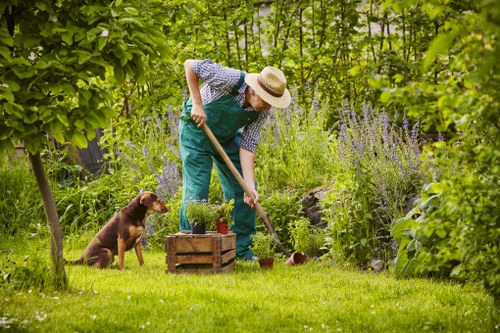
Maintaining a beautiful garden in Dalston requires a combination of expert knowledge and dedicated effort. Whether you're a seasoned gardener or a novice, understanding the unique challenges of the Dalston climate and soil is essential for thriving plants and vibrant landscapes.
Dalston offers a diverse range of plant species that can flourish with proper care. From lush green lawns to colorful flower beds, the key to successful garden maintenance lies in strategic planning and regular upkeep.
In this article, we will explore various aspects of garden maintenance in Dalston, providing you with actionable tips and insights to keep your outdoor space stunning all year round.
Essential Garden Maintenance Tasks
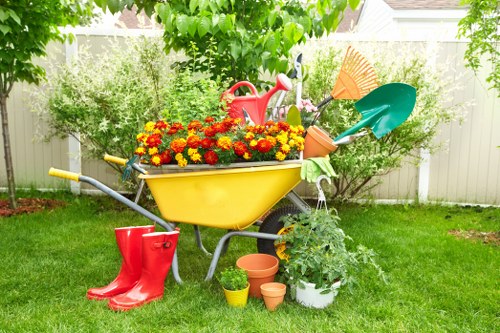
Effective garden maintenance involves several routine tasks that ensure the health and beauty of your plants. Here are some essential tasks you should incorporate into your gardening schedule:
- Pruning: Regular pruning helps in shaping plants, removing dead or diseased branches, and promoting healthy growth.
- Weeding: Keeping weeds at bay is crucial as they compete with your plants for nutrients and water.
- Watering: Proper irrigation techniques ensure that your plants receive the right amount of water without over or under-watering.
- Fertilizing: Providing essential nutrients through fertilizers supports plant growth and blooming.
- Pest Control: Monitoring and managing pests prevent damage and maintain plant health.
By consistently performing these tasks, you can maintain a thriving garden that enhances the beauty of your Dalston home.
Seasonal Garden Maintenance in Dalston
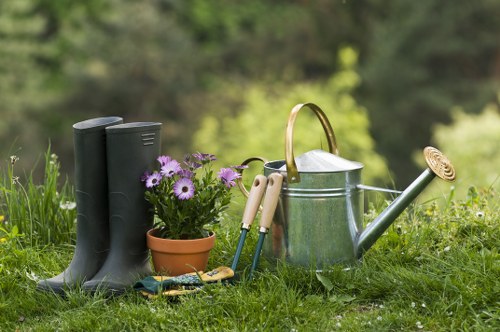
Dalston's climate presents unique challenges and opportunities for garden maintenance throughout the year. Adapting your maintenance routine to the changing seasons ensures that your garden remains healthy and vibrant.
Spring Maintenance
Spring is a critical time for garden rejuvenation. Begin by cleaning up any debris from the winter months and preparing the soil for new growth.
- Plant new shrubs and flowers.
- Apply a balanced fertilizer to promote robust growth.
- Prune trees and shrubs to shape them and remove any damaged limbs.
Additionally, it's an excellent time to pilot pests and diseases before they become problematic.
Summer Maintenance
During the summer, focus on adequate watering and shading to prevent plants from drying out under the intense Dalston sun.
- Implement efficient irrigation systems like drip irrigation.
- Mulch to retain soil moisture and suppress weeds.
- Continue regular weeding and pest monitoring.
Summer is also the perfect season for harvesting vegetables and enjoying the full bloom of your flowers.
Choosing the Right Plants for Dalston Gardens
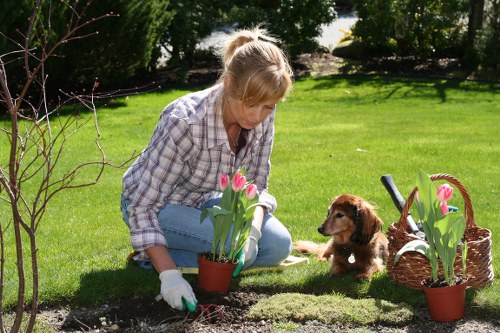
Selecting plants that are well-suited to Dalston's climate and soil conditions is fundamental for a successful garden. Consider the following factors when choosing your plants:
- Climate Tolerance: Choose plants that can withstand the local temperature ranges and precipitation levels.
- Soil Compatibility: Ensure that the plants you select are compatible with the soil type in your garden, whether it's clay, sandy, or loamy.
- Sunlight Requirements: Different plants have varying sunlight needs—some thrive in full sun, while others prefer partial shade.
- Maintenance Level: Consider how much time and effort you're willing to invest in maintaining each plant.
By selecting the right plants, you can create a resilient and low-maintenance garden that flourishes in Dalston's environment.
Pest and Disease Management
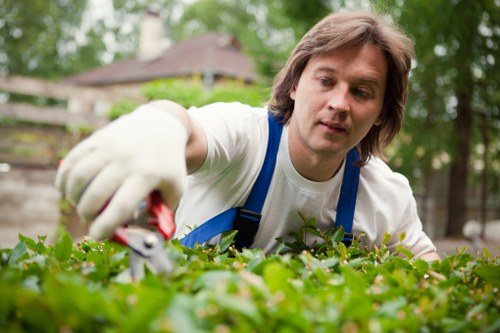
Maintaining a healthy garden involves proactive pest and disease management. Implementing integrated pest management (IPM) strategies can help you control unwanted visitors without harming your plants or the environment.
- Regular Inspections: Frequently check your plants for signs of pests or diseases to catch issues early.
- Natural Predators: Encourage beneficial insects like ladybugs and spiders that prey on harmful pests.
- Organic Treatments: Use organic pesticides and treatments to minimize chemical use.
- Proper Sanitation: Remove dead plant material and debris to reduce hiding spots for pests.
Effective pest and disease management ensures the longevity and beauty of your garden, making it a pleasant space to enjoy.
Landscaping Ideas for Dalston Gardens
Transforming your garden into a stunning outdoor oasis can be achieved through creative landscaping. Here are some ideas to inspire your Dalston garden makeover:
Create a Focal Point
Establishing a focal point, such as a water feature, sculpture, or a beautifully potted tree, can add visual interest and structure to your garden.
Incorporate Native Plants
Using native plants not only supports local biodiversity but also reduces maintenance since these plants are adapted to the local climate.
Add Pathways and Seating Areas
Designing pathways and comfortable seating areas encourages you to spend more time enjoying your garden, enhancing its functionality and appeal.
By integrating these landscaping ideas, you can create a personalized and inviting garden space in Dalston.
Professional Garden Maintenance Services in Dalston
For those who prefer to leave garden maintenance to the experts, numerous professional services are available in Dalston. These services offer comprehensive care, ensuring that your garden remains pristine with minimal effort on your part.
- Regular Maintenance Plans: Schedule consistent visits for tasks like mowing, pruning, and fertilizing.
- Custom Landscaping: Work with landscapers to design and implement unique garden features tailored to your preferences.
- Pest Control Services: Benefit from specialized treatments to keep pests and diseases at bay.
- Seasonal Clean-Up: Ensure your garden stays clean and well-maintained through each season with professional clean-up services.
Hiring a professional for your garden maintenance needs allows you to enjoy a beautiful garden without the stress of managing it yourself.
Conclusion: Maintaining Your Dalston Garden
Maintaining a garden in Dalston is a rewarding endeavor that enhances the beauty and value of your property. By following the essential maintenance tasks, adapting to seasonal changes, choosing the right plants, managing pests effectively, and incorporating creative landscaping ideas, you can cultivate a stunning outdoor space.
If you're looking for professional assistance, don't hesitate to contact us today to learn more about our comprehensive garden maintenance services in Dalston. Let us help you transform your garden into the vibrant sanctuary you've always dreamed of.
Book your service now and take the first step towards a flourishing garden in Dalston!

